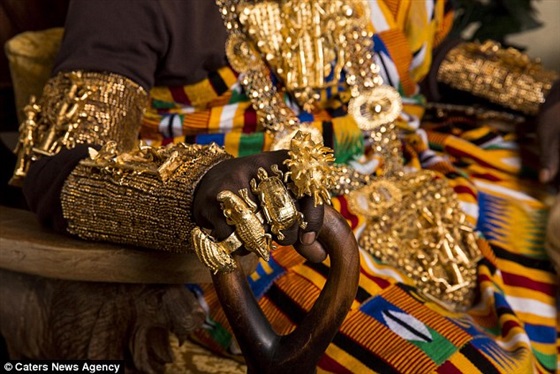
PANAJI, India (Reuters) – Ghana’s gold output is likely to drop sharply in 2017 because of curbs on the small-scale mining that lifted production last year but was causing damage to the environment, a government official said on Saturday.
Total gold output from Africa’s second largest producer was 4.1 million ounces in 2016, the highest level in nearly 40 years, up from 2.8 million ounces in 2015.
The government of President Nana Akufo-Addo, who took office in January, has temporarily banned artisanal mining, or panning for gold, in a renewed effort to clamp down on those who do it illegally.
“We anticipate at least a 50 percent drop in production from the small miners,” Barbara Oteng-Gyasi, deputy minister of land and mines told Reuters.
“We are trying to control illegal mining which is not good for the environment,” Oteng-Gyasi said on the sidelines of the International Gold Convention in Panaji, capital of India’s western state of Goa.
Artisanal mining is common in parts of Africa and accidents are frequent.
The small miners account for nearly a third of the total gold production and restrictions on their activities could help bigger players to raise production, Oteng-Gyasi said.
Canada’s Asanko Gold, US-based Newmont Gold and Anglogold Ashanti’s have mining operations in Ghana.
Ghana’s total gold revenues for 2016 including exports from small-scale mining amounted to $5.15 billion up from $3.32 billion in 2015.
The country’s diamond output is also likely to fall substantially in 2017 as diamonds are mainly extracted by small-scale mines, she said.
Ghana’s diamond production slipped to 143,005 carats in 2016 from 185,376 carats a year before, according to the Ghana Chamber of Mines.
Reporting by Rajendra Jadhav; Editing by Andrew Bolton

